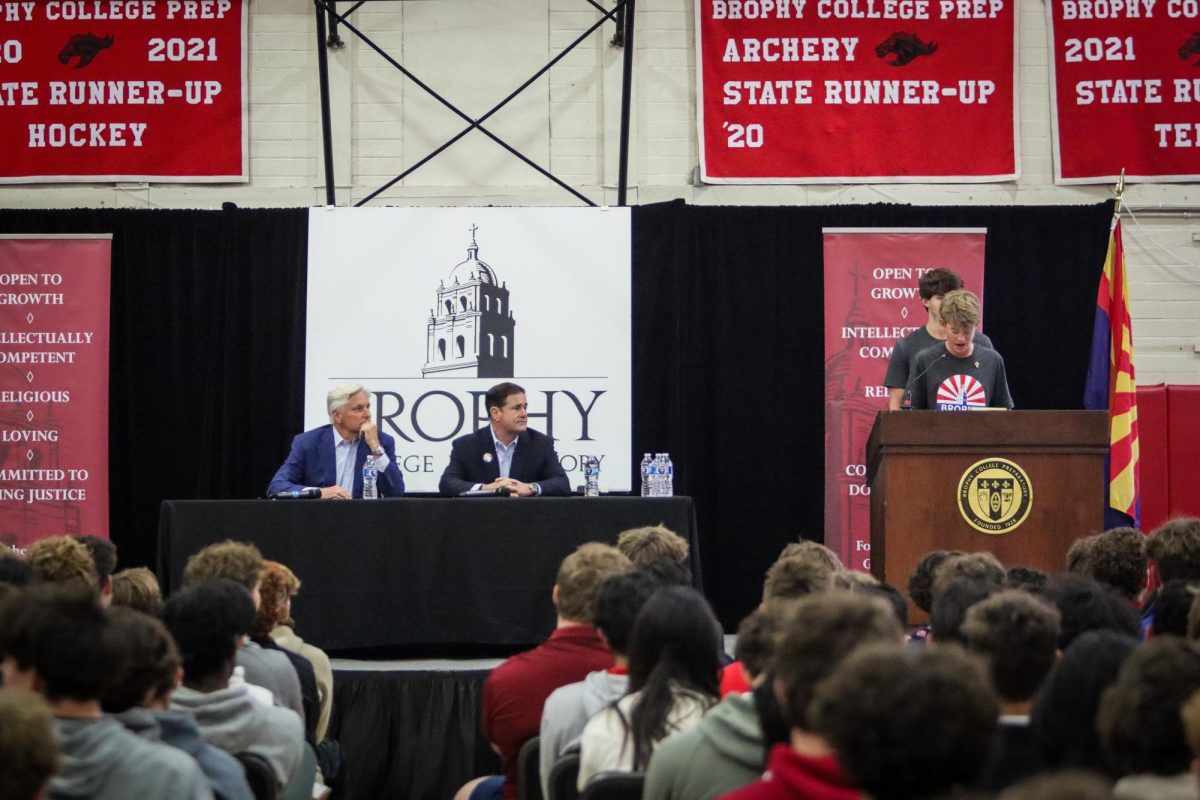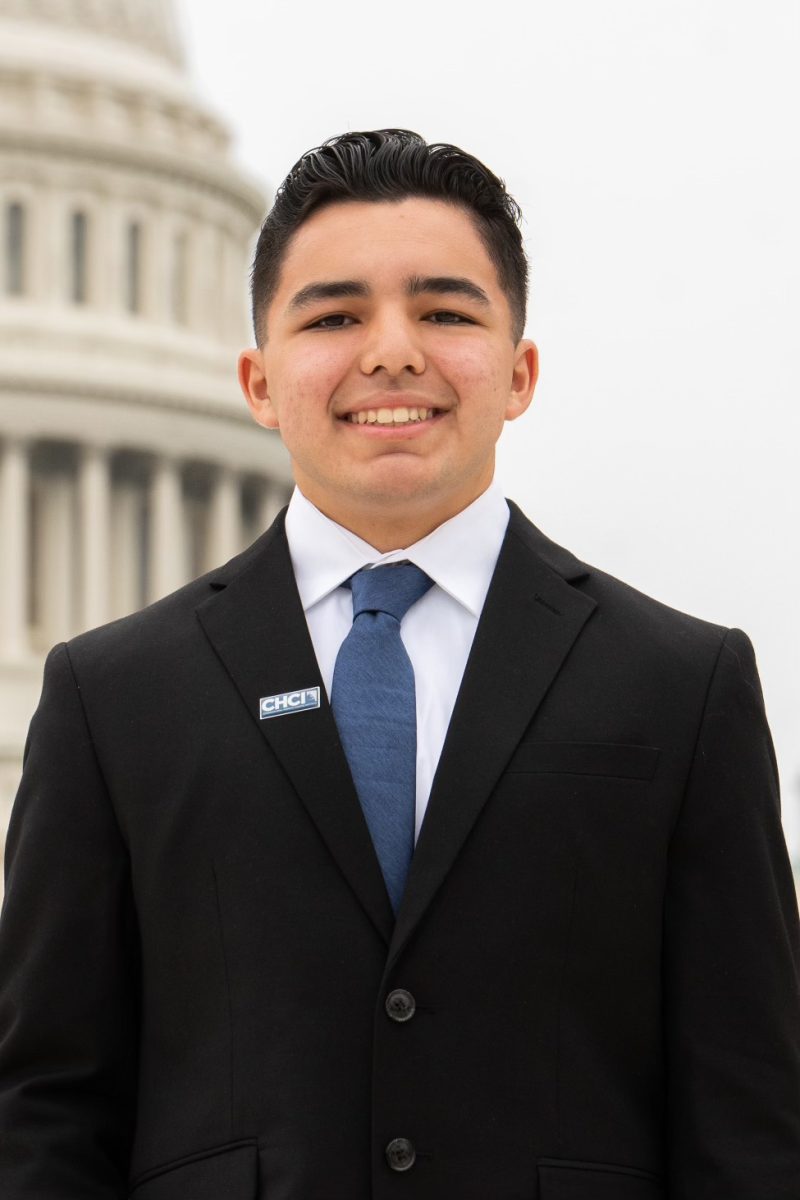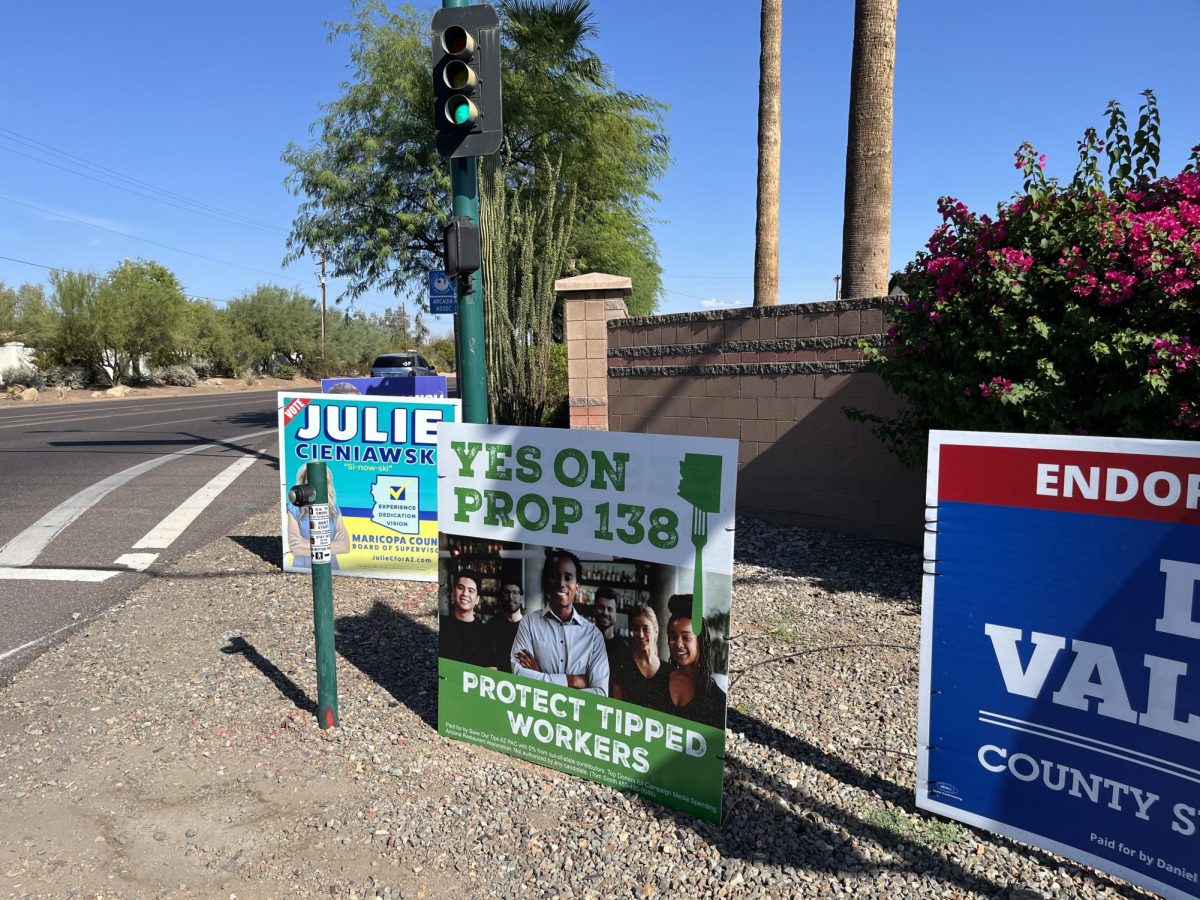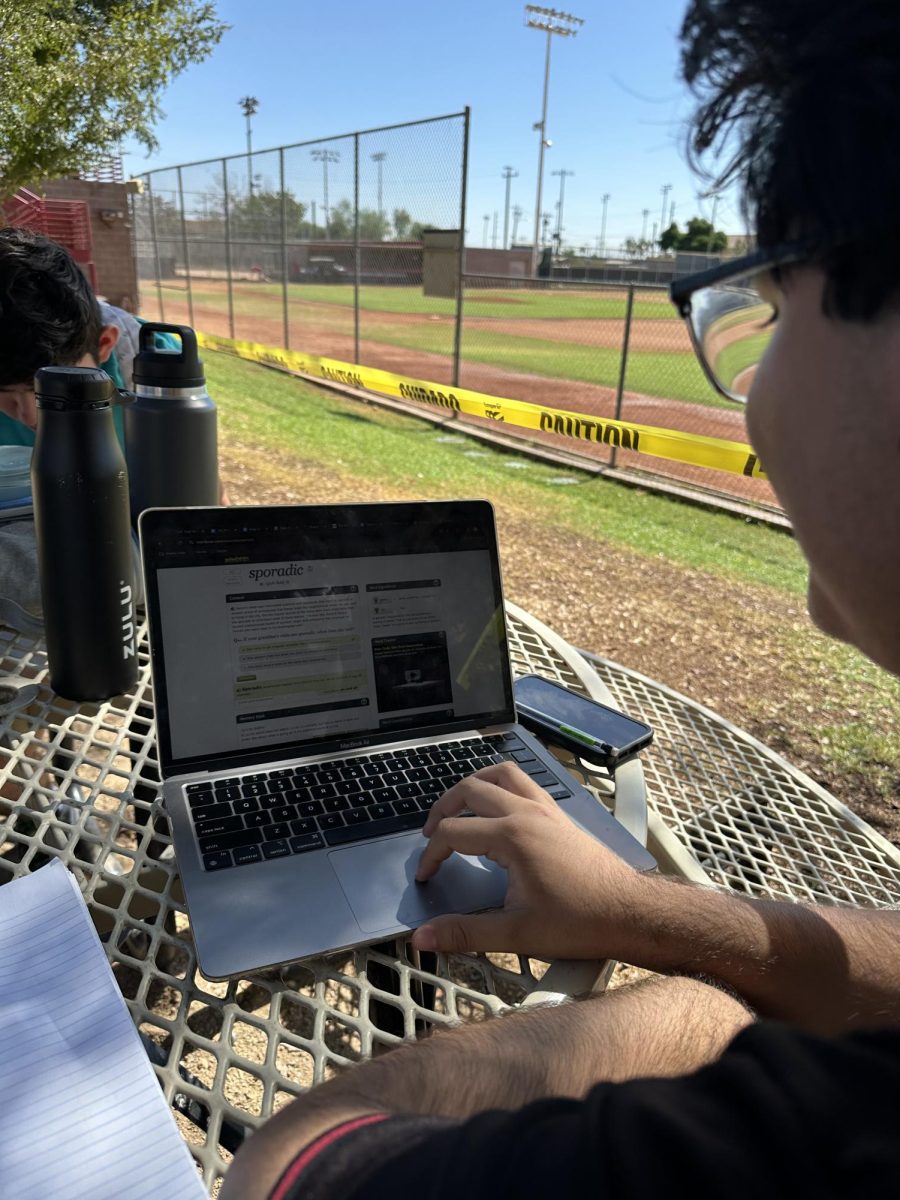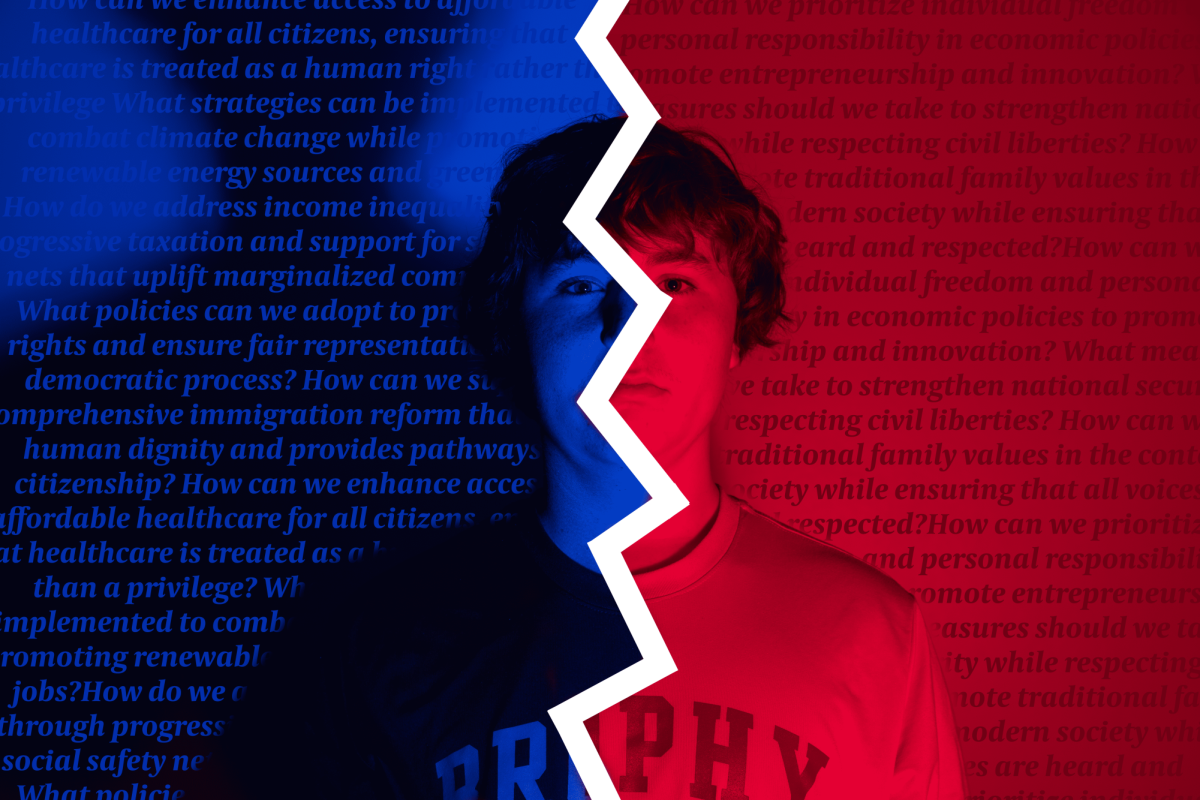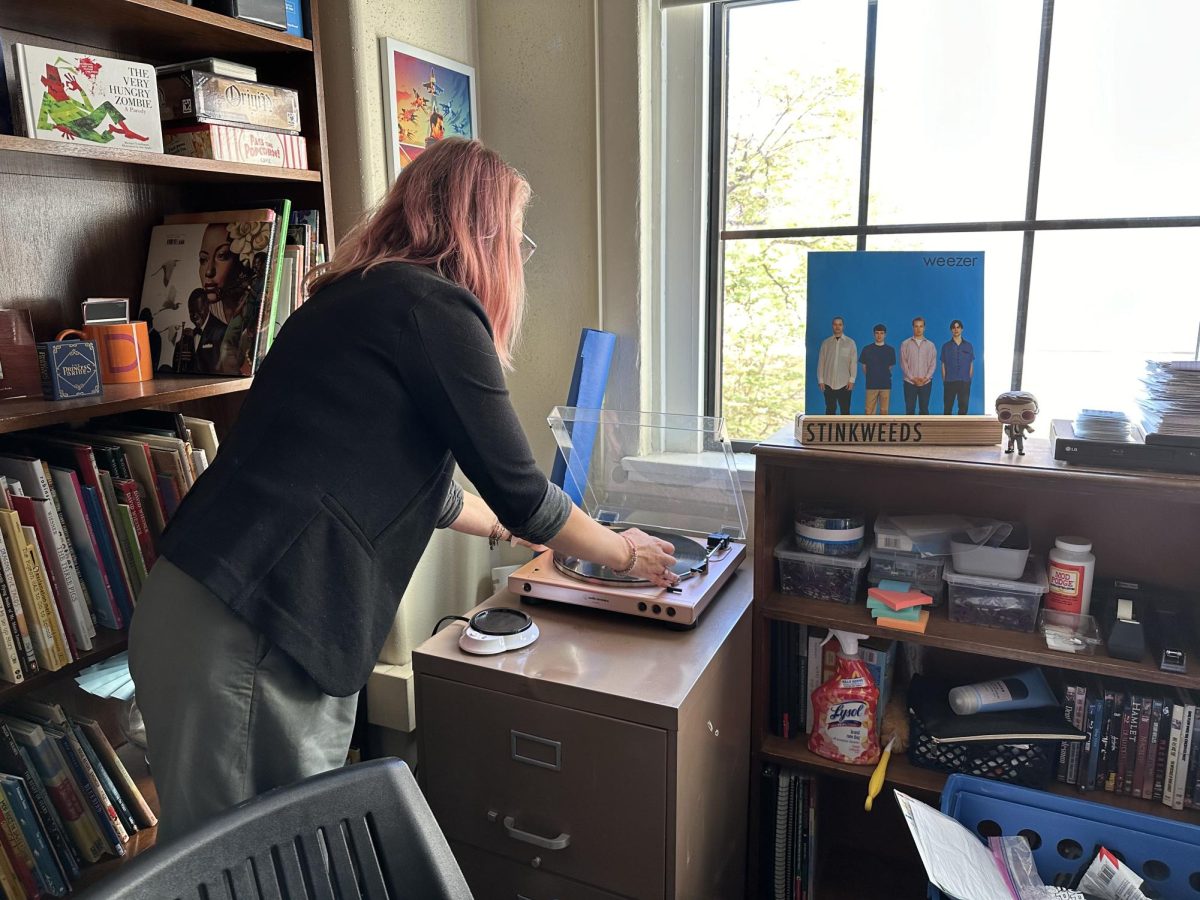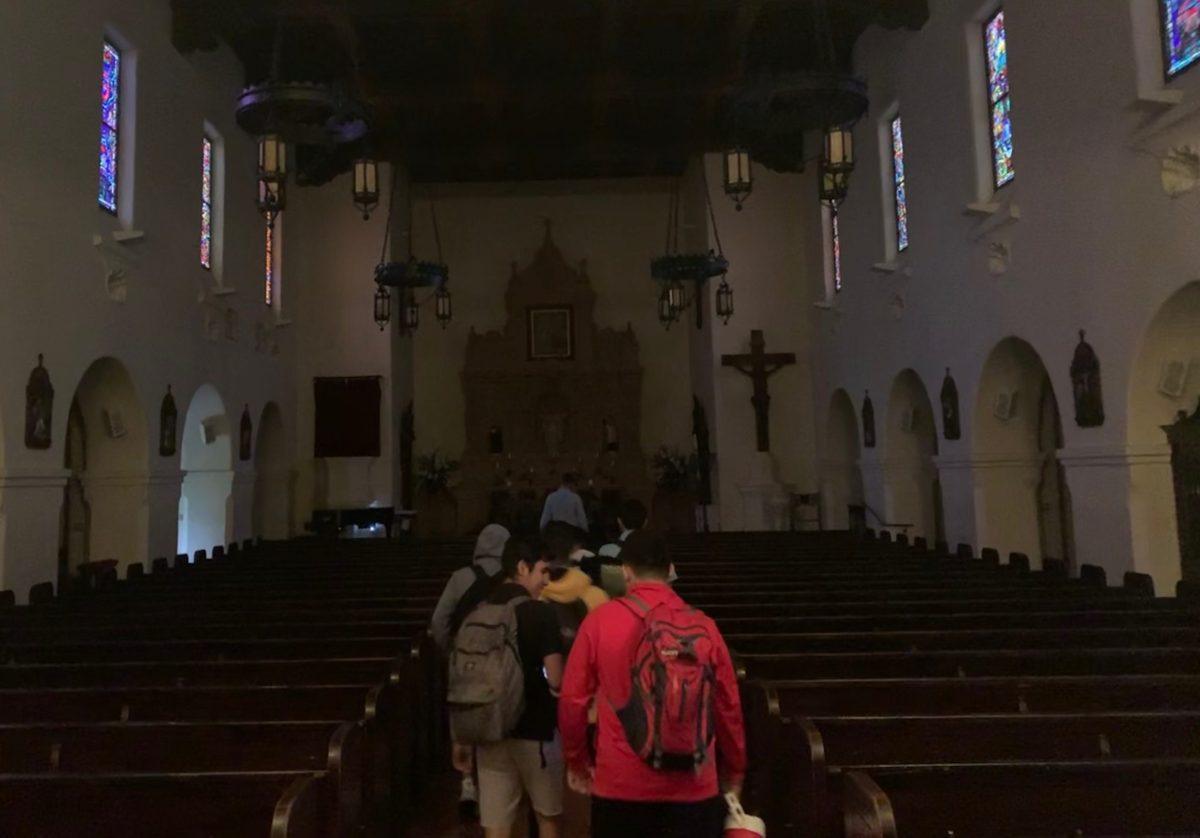Photo by Quentin Dunnigan ’22 | Mr. Rutt leads Spring LP students to their first reflection.
By Quentin Dunnigan ’22
THE ROUNDUP
At Brophy, countless service projects give students the opportunity to partake in community service in its many different forms. These experiences not only impact the communities that are visited by Brophy but also the students within Brophy. By visiting individuals in need, these circumstances seek to shape students to be more caring and more open to growth in some form.
Community service projects, therefore, were first created at Brophy to fulfil the goal of both serving local communities and forming Brophy students to be more understanding of the graduate at graduation principles.
Mandatory and voluntary service projects alike have been a part of Brophy for many years, dating back, for some, to before any current students were born. Because of this, service projects have had much time to change Brophy and its reputation as a school.
“Brophy is really well known for community service just in the larger community. I hear from our community partners all the time that [they] couldn’t do the work that [they] do without [student] work,” said Mr. William Rutt, Brophy’s service director who oversees Freshman, Sophomore and Junior service projects.
On top of change within Brophy, student lives have developed as a result of participation in service projects as well.
“Interacting with people that are different than us and also folks that are struggling in some way, shape, or form, especially physically, recenters our world and challenges us to consider the fact that we might not be the center and that we might think of putting others at the center,” Mr. Rutt said.
“I’ve put a lot of work into Saint Vincent De Paul and enjoyed all of the time I’ve had at Saint Vincent De Paul, and I’ve met a lot of people and had a lot of experiences that have shaped me for the rest of my life,” said Anthony Moretti ’21, who is currently enrolled in Honors Ignition Encounter and who volunteers frequently at a senior center.
Through three years of mandatory service, numerous schools and organizations have been directly assisted. With over 100 cumulative hours per student at these organizations, direct change can often be seen as a result of student efforts.
“The things that I hear most often from students and even community partners is that [student] presence makes people feel like they matter, feel like they exist and they are seen and they are heard,” said Mr. Rutt.
While student service may not always carry a large, long term impact on the organizations that are visited, Brophy involvement can change the experiences of the communities and the individuals themselves that are being reached out to. In turn, this benefits both Brophy and the community in a mutual relationship, as students have the opportunity to learn and grow from their experiences while the communities have the opportunity to be acknowledged in a welcoming atmosphere.
After Brophy, service projects may still carry much value in some students’ lives.
“Guys who really took their service to heart, they go off and sometimes join up with those agencies later on,” said Mr. Paul Fisko, who directs the Office of Faith and Justice.
“From Brophy I was like ‘I want to do more,’ so now I’m volunteering at the senior center by my house,” said Moretti. On top of this, Moretti explained that he will continue to seek service opportunities outside of Brophy because of mandated service requirements that introduced him to helping the community.
Looking ahead for Brophy, service projects have opportunities for growth and development in many aspects.
“I dream of a world, as a service director, where I support teachers, groups, and the community in integrating [service] into their teaching and into their programming and into the classroom,” said Mr. Rutt.
Mr. Fisko shares a similar belief. “It would be better if we integrated a lot of these things into how you teach a class; it’s more hands on and it keeps kids motivated to keep doing the hard work of service.”
Though this integration of service may be far off for Brophy’s future, the possibility offers a new way to view Jesuit education.

